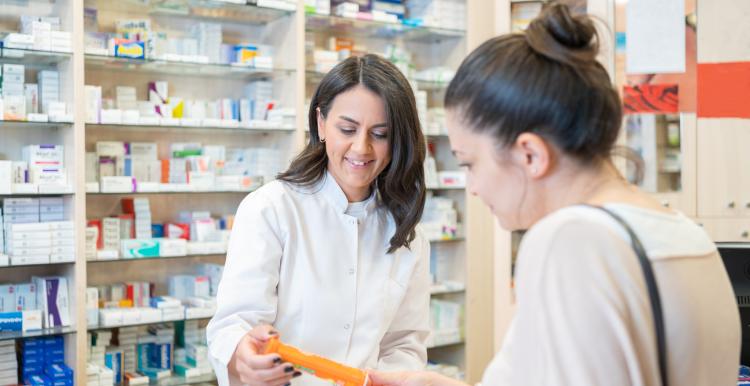Supportive local pharmacies could do even more

Respondents to our Hertfordshire survey about local pharmacies said they were mostly pleased with the support they received from pharmacies, but there could be more promotion of what services were available and better communication with GP Practices.
The findings have been sent to local NHS leaders with recommendations that pharmacies: increase awareness; provide a wider range of health/wellbeing advice and preventative services; strengthen links with local GPs; and improve accessibility for customers.
Why did we do this research?
The Hertfordshire and West Essex ICB Primary Care Board (ICB) asked Healthwatch Hertfordshire to find out what residents thought about local pharmacies, with a view to improving services. During a three-month period, we heard from 309 residents in our online survey.
Pharmacies are designed to be one of the easiest and quickest ways to access non-urgent health care and advice in England – 87 per cent of Hertfordshire residents live within a 20-minute walk of one. Local pharmacies play a vital role in care, so it’s important that patients’ voices are represented as pharmacies grow and change.
What did people tell us?
- 71% of respondents were either “likely” or “very likely” to visit a pharmacy for advice or information, and 68% trust a pharmacist to give medical advice,
- 70% of respondents used a pharmacy on monthly basis, with 91% visiting to collect prescription medication for themselves or someone else.
- 57% said the pharmacy was the first place they went for information and advice, while others turned to the internet, NHS 111 or friends and family first.
- 80% of respondents described the support they received from their pharmacy as “very good” or “good”, with staff described as friendly, supportive and approachable. Many commented that staff were knowledgeable and this was a good way to take pressure of other health care services such as GPs.
- 46% of respondents felt that their pharmacy and GP practice worked well together, but 30% said that was only sometimes the case.
- Some people said long queues, waiting times, inaccessibility of location, privacy concerns and the unknown expertise of staff made them hesitant to use pharmacies.
The survey highlighted that whilst many people knew the basic services offered by pharmacies, such as dispensing medication and disposal of medication, lots weren’t sure about other services offered. It showed that not enough is done to promote awareness and understanding of the various additional services in community pharmacies.
What happens next?
Recommendations from this Report have been sent to NHS leaders at the ICB. These include:
- Promote the expertise, knowledge and qualifications of pharmacists to educate and reassure the public and prevent misconceptions.
- Promote the essential services pharmacies offer, with a particular focus on discharge medicines services, promotion of healthy lifestyles, signposting to other health and social care services, self-care support.
- Review accessibility and communication – opening hours, improve queuing, delays and waiting times, medication delivery availability and text reminder services.
- Pharmacists and pharmacy staff should ensure they are discreet when engaging with customers by being proactive and offering to discuss the customer’s query in a suitable private space.
- Pharmacies and GP practices should work together to strengthen communication and collaboration.


